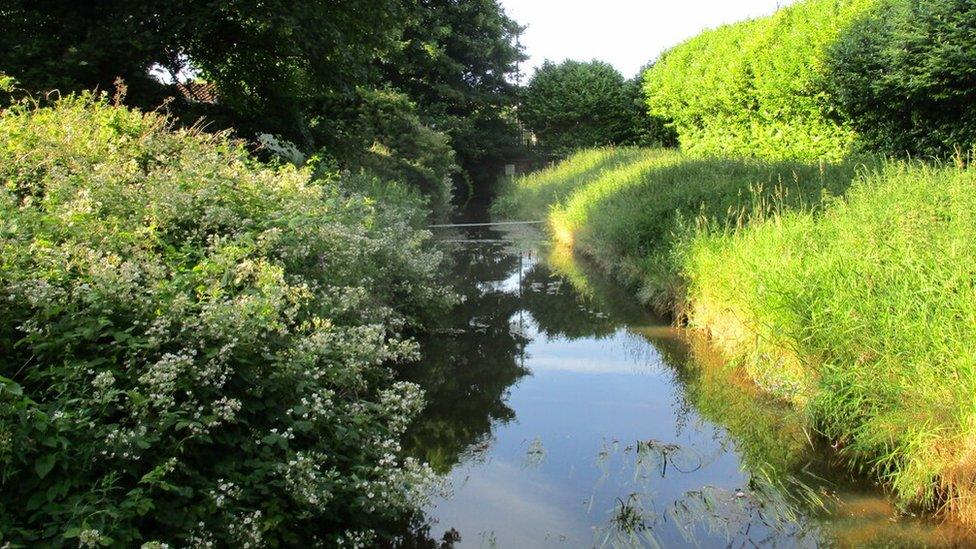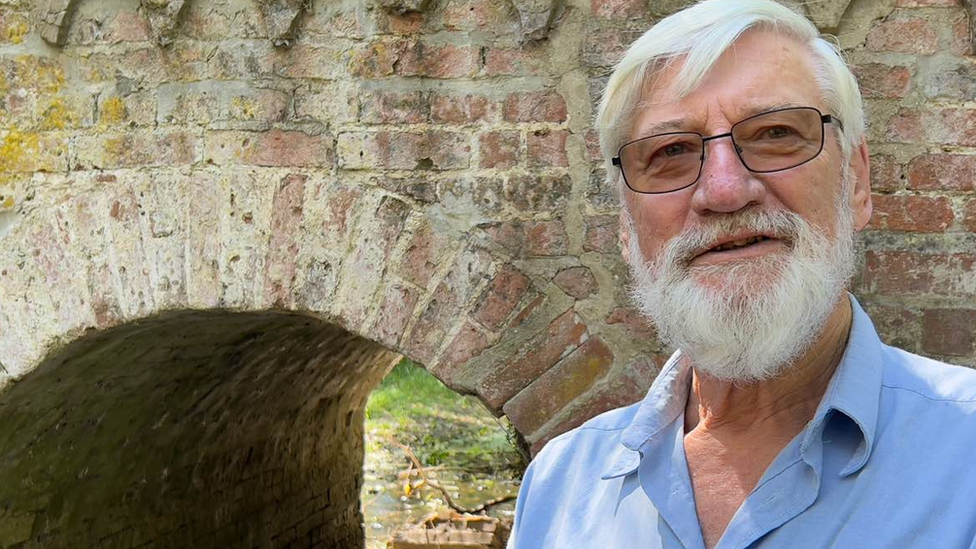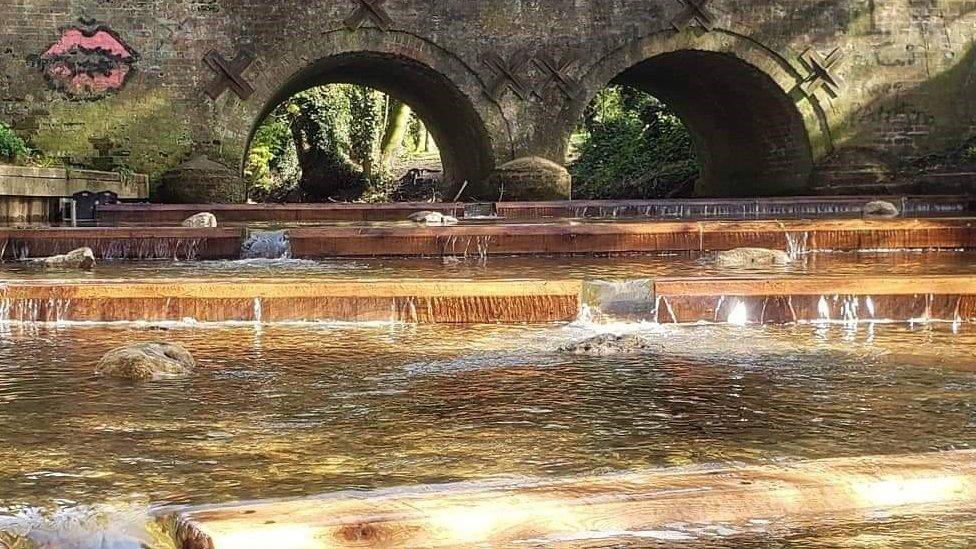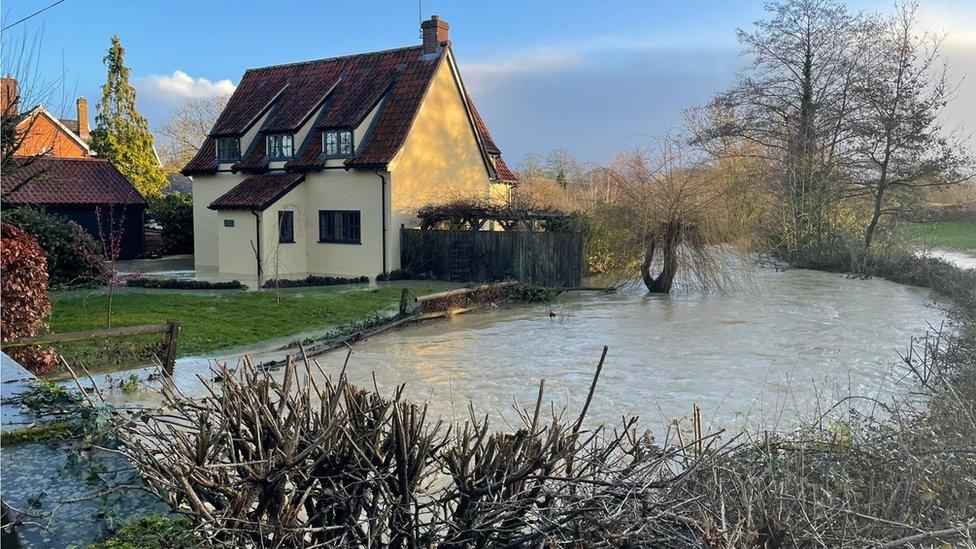Calls for chalk stream dredging to stop near Grimston
- Published

The Gaywood River is a slow-running chalk stream which springs near Grimston and Gayton
Activists have called for a halt to dredging carried out to help prevent flooding at a rare chalk stream.
They claim annual vegetation clearance in Gaywood River near Grimston, King's Lynn, harms the rare habitat.
Chalk streams are often described as England's rainforests, with the majority of the 200 in the world found in south east England.
But farmers, who pay for the work, said the practice ensured the flow of water.
Campaigners said the clearing of plants along the mile-long stretch of waterway could potentially increase the risk of flooding further downstream in King's Lynn.
They want the King's Lynn Internal Drainage Board (KLIDB), which carries out the work on behalf of the farmers, to rethink its strategy.
Sarah Taigel, a geographer who has been analysing the flow of Norfolk's chalk streams for more than a decade, said the stream had "zero flood risk".
"The vegetation clearance in the channel and on the bank is the equivalent to habitat annihilation, not just for fish and invertebrates but also water voles - a protected species," she said.
Russell Biggs, who has been working with the Norfolk Rivers Trust to monitor the health of the region's waterways, said: "These actions serve no purpose and could lead to the death of the ecosystem.
"The machine used to remove the plants from the river goes so deep it cuts into the bed causing a lot of damage."
The KLIDB said its annual maintenance work was vital to prevent flooding in Grimston and to protect the Anglian Water sewage plant in Grimston from weed blockages.
A spokesman said: "The KLIDB do our best to strike the balance between flood risk management and protection of the local environment."
Rob Wise, the National Farmers' Union environment adviser for East Anglia, said the KLIDB's actions were necessary to keep water flowing in order to ensure "there is a fair share of water for food production, while meeting environmental responsibilities".
The KLIDB said it did not dredge the waterway, arguing the machine it used to clear the weeds - fool's watercress - did not cause any desilting or removal of the riverbed.

Follow East of England news on Facebook, external, Instagram, external and X, external. Got a story? Email eastofenglandnews@bbc.co.uk, external or WhatsApp us on 0800 169 1830
Related topics
- Published17 August 2022

- Published15 October 2021

- Published24 December 2020
